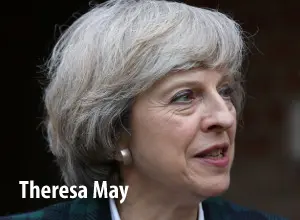The_UKs_Brexit_objectives_latest
The UK’s Brexit objectives
In a speech today (January 17th, 2017) British Prime Minister Theresa May laid out the government’s objectives for its Brexit negotiations, which will begin after Article 50 is triggered at the end of March 2017.
 As she has done before, Mrs May stated that the UK would remain open for business in a post-Brexit world.
As she has done before, Mrs May stated that the UK would remain open for business in a post-Brexit world.
She confirmed that retaining the strength of the ‘union’ (of the UK) would be central to government plans and objectives, and that she did not intend that Brexit would weaken the strength of the EU. She went on to state how different the UK was in terms of its unwritten constitution, and its historical ties to its Commonwealth, and that the UK public prefers to hold its government more directly to account than exists in the EU.
Mrs May stressed that she expected the UK to work closely with the EU to create a new mutually beneficial trade relationship – a new kind of partnership with Europe.
Most critically, Brexit will, she announced, be a ‘clean’ Brexit, with the UK leaving the single market, while still aiming at achieving a mutually beneficial relationship between the UK and the EU. Mrs May went on to outline the UK government’s key objectives, which include:
- Certainty whenever possible – although ‘not everyone will know everything as negotiations unfold’.
- To build a stronger Britain, by taking back control of laws, with all legislation made in the UK. EU Law will be converted into UK law, and the eventual deal will be voted upon by the British parliament.
- Mrs May went on to state that a ‘stronger Britain also needs a strong United Kingdom.’ This will be partly achieved by ‘establishing new and strong trading relationships’.
- To build a fairer Britain, which means that while taking control of immigration, it can still attract international talent.
- Fairness also means guaranteeing the rights of existing EU citizens living within the UK.
- Maintaining the travel area between the UK and Ireland.
- Access to the European single market should be through a new free trade relationship, not starting from scratch, but building on the relationships that already exist.
- Trade deals will also be actively sought abroad, including strengthening ties with many countries, none the least the USA and China.
- In terms of the customs union, Mrs May acknowledged that while the UK cannot be a full member as it does not wish to be bound by a common external tariff.
- The UK to continue to work closely with EU partners on projects of mutual interest.
- She went on to state that there was ‘no point in creating a ‘cliff edge’, but rather a phased introduction of changes.’
- Finally, Mrs May stated that she hoped that there would continue to be ongoing sharing of information on, and maintaining a joint approach to security.

